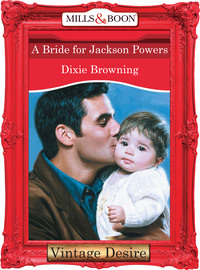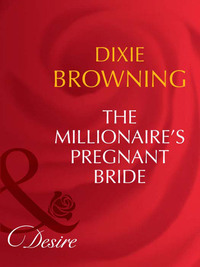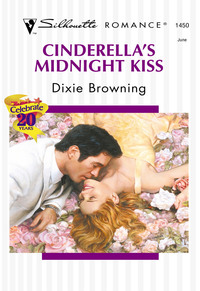
Полная версия
The Quiet Seduction
Evidently Storm had used the shaving things. Awake, he’d looked older. Even wary. Asleep, he looked oddly vulnerable. His features were too irregular to be called handsome, yet he was strikingly attractive, even with a purple lump on the side of his head. “Whoever you are,” she murmured, “you’re safe here.” It was the best she could do in return for his saving Pete’s life.
The next time he awoke he would probably remember who he was and call someone to come for him if they couldn’t locate his car. If he had any sense at all, he’d have them drive him directly to the hospital in Mission Creek for X rays.
Once he was gone things would go back to the way they’d been before, with her and Pete and two no-account hired hands trying to do the work she and Jake and Mr. Caster had done before her world had fallen apart.
Ellen’s shoulders drooped. She was tired before the day even started. Booker and Clyde, the two transients she’d recently hired, were no more than adequate even when they were sober. They didn’t know nearly as much about horses as they’d claimed when they’d showed up looking for work, but at least they were willing to work for what she could afford to pay and weren’t too proud to take orders from a woman. Desperate to hang on to what they had without having to turn to her father again—something she had sworn she would never do—she had hired them on the spot.
After washing off a scratch, she dabbed on antiseptic, winced at the sharp sting and sighed. Sometimes she wished she could just take a single day off and do something frivolous, such as curl up with a good book and read and sleep all day long, or take Pete to a circus, or even a movie in town.
Christmas was only a few weeks away, and she hadn’t even thought of what she was going to get him. A bike, of course, but some little surprise would be nice.
With no heritage of his own, Jake had been determined to build one for their son. Now Jake was gone, but with any luck, she’d be able to raise their son right here, the way they had planned. Pete would grow up on Wagner property. Eventually he would marry and have children of his own, and one day, if they were lucky, her grandchildren would grow up here along with the descendants of the quarter horses she and Jake had bought with such high hopes for the future.
She’d made meat loaf and mashed potatoes for supper last night and served leftovers for lunch. Her mystery man had eaten little either time, and talked even less. Fine. He needed rest more than anything else, and she was too tired to make conversation.
Funny, the way a dream could change, she mused as she washed the supper dishes. One dream simply merged into another, and then another as time went on, evolving, but never quite losing the essential core.
The only dream she had room for now was to guide her son safely through the next few years to try to make up for his lack of a father. It wouldn’t be long until she’d be dealing with an adolescent instead of a sweet child who was almost too eager to please—almost as if he were afraid she would go away, too, the way his father had.
She had done everything she could think of to reassure him—they had talked to a counselor at the school. But Ellen knew that she alone was responsible for raising her son to be a decent, responsible adult. She didn’t know how much of a role model she could be, but she fully intended to give it her best shot. They would make it. One way or another, she would see to it.
“And as for you, my mysterious stranger,” she whispered, “I’ll take care of you, too, for as long as you need me. I owe you.”
He was still sleeping when she glanced in again before heading upstairs to her own bed. This time she didn’t try to rouse him. It had been more than twenty-four hours now and there’d been no indication of a concussion. And he really did need his sleep. The sooner he healed and remembered, the sooner he’d be off her hands and the sooner she could get back to building Pete a legacy from a few horses and a few hundred acres.
After pulling the light quilt up over his shoulders, she felt his forehead with the back of her hand, then tiptoed from the room, leaving the door ajar in case he needed anything. It was almost like having two sons to care for.
Oh, no, it wasn’t. She didn’t know what she felt toward the man called Storm, other than gratitude, but whatever it was, it wasn’t even faintly maternal. No way!
He would probably insist on getting out of bed tomorrow. Men could be stubborn about such things, taking any kind of sickness or injury as a threat to their manhood. Jake had been the same way. He wouldn’t admit to having allergies even when he was sneezing his head off, his nose running and his eyes all watery. As if hay fever somehow negated his masculinity.
Oh, Jake, she thought, sighing. She had long since run out of tears, but she still wept inside her heart. After more than two years she still caught herself glancing around, expecting to see him kicking the mud off his boots on the back porch, or hanging over the paddock fence, gloating over his precious horses. Two yearling mares, two geldings and a stallion. Hardly the mix he’d been planning on, but he’d bought the lot of them at a bargain price from a man who’d unexpectedly been forced to relocate.
They had mapped it all out on paper—the buying, the breeding strategy, but they’d hardly got started when Jake had been diagnosed with a particularly virulent and fast-growing form of cancer. He had died just thirteen months after they had bought the ranch and moved to Lone Star County.
And dear God, a part of her had died with him. If it hadn’t been for Pete, she didn’t know what she would have done. Going back home had never been an option. She didn’t know what her own father would have thought of his grandson if they ever met, but that wasn’t going to happen. Never again would she beg. Leonard Summerlin had disowned her when she’d married against his will and turned his back when she had needed his help so desperately.
Not for the first time, the irony of the situation struck her. Unless he fathered a son of his own, Pete was her father’s sole male descendent. For a man who liked to think of himself as a dynasty builder, Leonard Summerlin was his own worst enemy.
He had told her countless times that she was just like her mother, then gone on to recount her mother’s shortcomings. Celinda Summerlin was vain—but then, Celinda Summerlin had been beautiful. Ellen had never had anything to be vain about. According to her father, Celinda hadn’t a clue when it came to managing money, but even as a child Ellen had understood that her mother had never had enough money to manage before marrying Leonard Summerlin.
When it came to managing, Ellen had been no better, no worse than most of her friends at staying within her allowance. In later years she had discovered somewhat surprisingly that the less there was to manage, the better a manager she became. The bank in Mission Creek that held the mortgage on the ranch had advised her to lease out most of her acreage, keeping back only enough for pasturage and to grow feed for the horses. That way, the banker had explained, she could be certain of meeting the mortgage payments with a bit left over without the risk of losing an entire crop to flood, drought or a sudden freeze. The weather everywhere, he’d reminded her, had been increasingly erratic over the past few years.
It had seemed sensible to her. She had kept the stock although she hadn’t known the first thing about horses, much less about breeding them. But the horses had been Jake’s dream, and she was determined to hang on to as much of that dream as she could for their son. She might have come from a privileged background, but from someone—her mother, most likely—she had inherited a backbone. Dust-bowl-survivor genes, Jake had called it, teasing her about the way her jaw squared off when she got what he’d called her I-shall-not-be-moved look on her face.
Whatever it was, grit or survivor genes, it had enabled her to get through another day and then another one when she couldn’t see her way through the coming night, much less the years ahead.
“No way,” the man called Storm said adamantly. “Look, I’ll get out of your hair if my being here is a problem, but I’m not going to any damned hospital for a simple sprain and a headache.”
“Oh, hush up and let me think,” Ellen grumbled. They’d been arguing about how long it had been. She’d said this made three days. The man had said he could only remember one, and not too much of that.
Pete grinned. He’d come in to bring the morning paper just as his mother was fussing at him again. Boy, it sure was cool to hear her fussing at a grown man the same way she did him when he wouldn’t finish his macaroni and cheese or forgot to put his dirty clothes in the hamper.
“All right,” his mama said finally, laying down the law. He knew that tone. Man, did he ever! “You can get out of bed and come in the living room. I know you’re dying to watch the storm coverage on TV, but you’re going to keep that foot up and if I hear one more peep out of you about leaving, I’m going to—”
Pete watched, grinning broadly.
The man watched. He was scowling.
“—to call the paramedics to come haul you off and you can argue with them for a change. I just don’t see what’s so awful about having a doctor look you over. For all you know, you might have some broken bones. There are hundreds of bones in your feet, and your foot’s not all that far from your ankle.”
Storm looked at Pete and lifted a brow. “She go on like this a lot?”
Solemnly the boy nodded. “Yessir, that she does, but she means well. That’s what my daddy always said.”
Ellen’s hands flew up in a gesture of surrender. “All right, be one, then!”
“That’s what she always says,” Pete confided. “Daddy used to tell her B1 was a bomber, and she’d just walk off the way she’s doing now, all huffy and puffy. She’s not really mad, though.”
Storm didn’t think she was, either. Somewhere among the jumbled miscellaneous impressions he’d dredged up was the knowledge that women acted that way when they cared about someone who refused to bow to their superior wisdom.
How the hell do I know that? Do I have a wife? Daughters?
Irritated, frustrated and amused, he said, “Your mother says you’re a checkers champ. Lay out the board, son. Best two out of three, okay?”
“You bet! But first I’d better go feed up and fill the trough. Booker and Clyde, they’re pro’ly drunk again. Don’t tell Ma, though. She threatened to fire ’em next time she caught ’em drinking.”
“Sounds like a pretty good idea to me.”
They continued the conversation after the boy completed his chores. While Pete got out the checkerboard, Storm reiterated his suggestion. From what he’d heard about the two hired hands, they weren’t the type any decent man would want around his wife and child.
“Know what? They smoke, too. My mom said if she ever caught ’em smoking in the barn around all that hay and stuff, she’d run ’em off with a pitchfork.”
“Smart woman, your mama.”
Pete shrugged his skinny shoulders. Emptying out the worn drawstring bag, he began setting up the board. Without looking up, he said, “Know what? Booker’s cigarettes don’t smell much like Mr. Ludlum’s. They smell more like a chicken house. They look kind of funny, too.”
Very carefully, Storm centered a black checker in a red square. He was going on sheer instinct. “They ever offer you a smoke?”
“Nope. I wouldn’t take it if they did. I promised Mom.”
Storm made a tentative move, which Pete promptly countered. He had an idea there was more being handed around in that barn than a bottle of hooch and a filter tip. Frowning, he made another move.
Pete promptly jumped his man and glanced up, a triumphant grin lighting his bony little face. “Gotcha!”
“Fair and square. I’d better concentrate on what I’m doing here. I didn’t figure you to be this good.”
“I’m pretty good, all right. I beat Mom almost every game, but that’s pro’ly ’cause she lets me.”
“I wouldn’t be too sure.”
Storm hadn’t even been sure when he’d offered to play whether he knew how. Evidently, he did. They played in silence for a few more minutes. Then, without looking up, the boy said, “Trouble is, if Mom gets rid of Clyde and Booker, we’ll have to do everything ourselves again, and she’s no good at pulling wire. Last time we tried to fix a section of fence she couldn’t hardly get out of bed the next day. She’s even worse with a post-hole digger than she is with a wire puller, but I’m not tall enough yet. We had us an auger for the tractor, but the P.T.O. got broke.”
“The what?”
Frowning, Pete tried to describe, using his hands, how the power take-off worked with different attachments. “I get the idea,” Storm said. And he did—sort of. “What about your neighbors? Can’t one of them lend you a couple of hands for certain jobs?”
“Nobody wants to work for a woman.” It was a simple declarative statement. Pete looked up from the checkerboard, disgust clear on his tanned face. “’Sides, we’re already scraping the bottom of the barrel. Least, that’s what my friend Joey’s pa says. Mr. Ludlum says men don’t like taking orders from a woman, even when she’s the boss.” He shrugged his bony shoulders and clapped a crown on one of the reds. “My mom’s real smart, but Booker, he calls her stuff behind her back.” The boy’s face turned a dusky red as he concentrated on the worn checkers.
Storm felt something inside him tighten like a fist. One thing he would do before he left—have a talk with this Booker fellow, whoever and whatever he was. Anger crammed in on the frustration he felt at being laid up, both mentally and physically. He had a strong feeling he wasn’t used to inaction. Restlessness didn’t begin to describe his reaction. Wariness came closer.
What the devil did he have to be wary about? Was he an escaped prisoner? A drug runner? They weren’t all that far from the border. Then, too, there was something about the state prison….
It was gone. The impression flickered through his mind like a firefly, then winked out before he could catch it.
“Gotcha! Mr. Storm, I gotta go help Mom bring in the horses and rub ’em down now. Booker and Clyde, they’ve got to unload the hay wagon ’cause I can’t lift the bales yet.”
“Yeah, you go ahead, son. We’ll play more later—after you’ve done your homework.”
Mr. Storm. The name wasn’t a perfect fit, but it felt pretty close.
The next day went largely like the others. Storm was increasingly aware of the creeping hours and increasingly fed up with being out of commission. His head still ached, but it was a manageable ache—nothing he couldn’t handle. Disdaining the use of the crutch, he limped into the living room and plopped down on the sofa. His knee still suffered the occasional twinge if he turned too quickly, but most of the swelling was gone. His ankle was better, too, as long as he didn’t overdo it.
He was damned tired, though, of having to wear another man’s clothes. The sooner he got back to his own home, his own clothes and his own business—wherever and whatever that was—the better he’d like it. Hadn’t anyone even reported him missing? A business partner, or a family member?
No man is an island. Had someone actually said that or had he only dreamed it up? Was it some great philosophical insight or gibberish? It was the damnable uncertainty that was driving him nuts. Why wasn’t anyone out searching for him? It hadn’t been that long; it only seemed that way. Was there a wife somewhere going quietly out of her mind with worry? He didn’t feel married—however that was supposed to feel. There was no sign that he’d ever worn a wedding ring.
Ellen wore a plain gold band. Her hands were rough, but nicely shaped. He had a feeling his wife—if he had one—would have smooth, pale hands with polished nails and a full complement of jewelry.
Now why would he think that? Actually, now that he considered it, Ellen’s hands were just right for a woman. Strong, capable, without being any less feminine. Which pretty well summed up the woman herself.
From the TV coverage he’d seen, the rash of tornadoes that had barreled across the southwest corner of Texas before streaking up the Mississippi Valley had managed to miss the most heavily populated areas. Thank God for that, at least. The southeast portion of Lone Star County had suffered most of the damage.
Lone Star County. That definitely triggered a reaction, but for all he knew, he could have seen it on a road sign. He could’ve been just passing through on his way from—
From where? To where?
He swore softly and discovered that he was good at it. Came naturally. What else, he wondered, would come naturally? Talking to a kid? Yeah, that was no big strain.
Talking to a woman? Touching a woman?
Again it was Ellen Wagner he thought of—the image of her pale green eyes and tanned, hollow-cheeked face. He thought about the woman—about the soft, firm way she had of speaking to her son. The soft, firm way she had touched his brow that first night when she’d thought he was sleeping.
Back off, man. You’ve already got more than a full caseload of trouble.
There was a framed crayon drawing hanging on the wall over the bookcase. Crudely drawn horses standing in a lime-green pasture while seven fighter jets flew overhead. Pete’s signature was as big as the horses.
Oddly touched, he wondered if his own mother had ever hung one of his drawings in such a prominent place. Could he even draw? Did he have a mother?
Come on, folks, get on the ball! If I mean anything to anyone, come find me. Hide and seek gets pretty frustrating after the first few days.
Using the remote, he turned the TV on and switched channels until he found the CNN headline news. OPEC, Congress, Bosnia were in the news again.
Again? Shrugging, he switched channels, caught a name—Mercado—and swore as they went to commercial.
Mercado. Did the name mean anything, or was he grasping at straws? “Storm Mercado.” He spoke out aloud, trying it on for size. It didn’t fit. He muted the TV sound and reached for the newspaper. The more he scanned, the more his gut twisted. Several names snagged momentarily, but nothing came into sharp focus. Finally, in sheer desperation, he turned to the sports page.
Hell, he didn’t even know who—or what—to look for there. Was he a football fan? If so, which team?
A headline read Golf Pro At Lone Star Country Club Claims Vandalism.
Lone Star Country Club. “Come on, come on,” he muttered. It was there, just beyond his reach. Like a voyeur standing outside the fall of light, watching from the darkness, he tried to see into his own mind.
And felt like crying when he failed.
Конец ознакомительного фрагмента.
Текст предоставлен ООО «ЛитРес».
Прочитайте эту книгу целиком, купив полную легальную версию на ЛитРес.
Безопасно оплатить книгу можно банковской картой Visa, MasterCard, Maestro, со счета мобильного телефона, с платежного терминала, в салоне МТС или Связной, через PayPal, WebMoney, Яндекс.Деньги, QIWI Кошелек, бонусными картами или другим удобным Вам способом.











